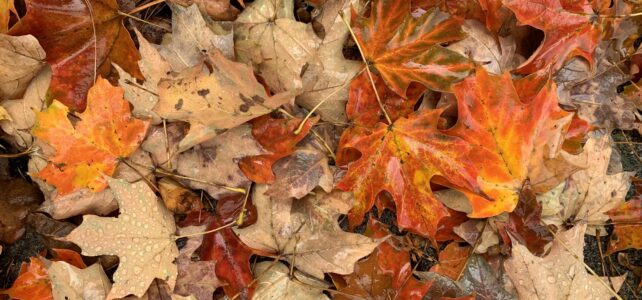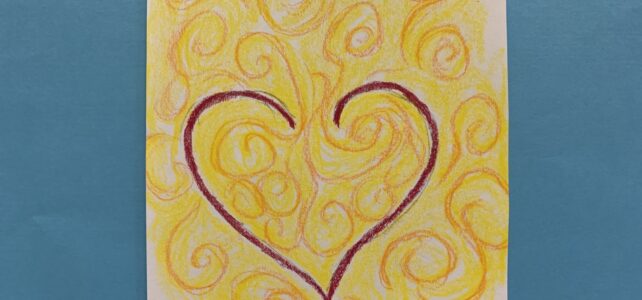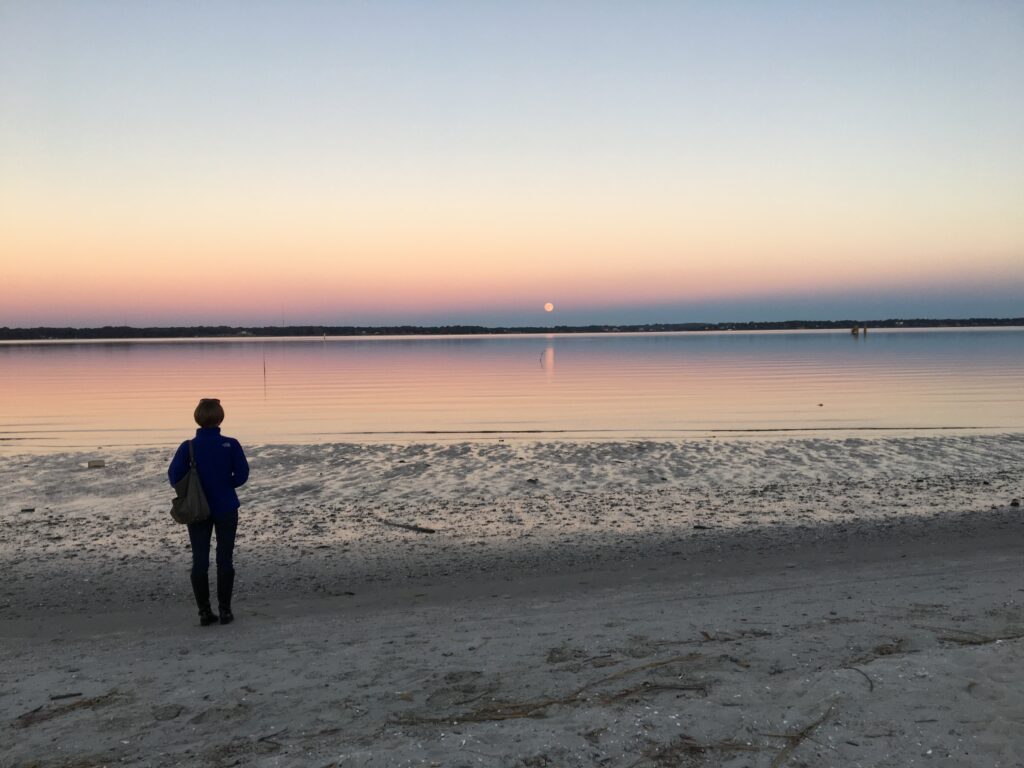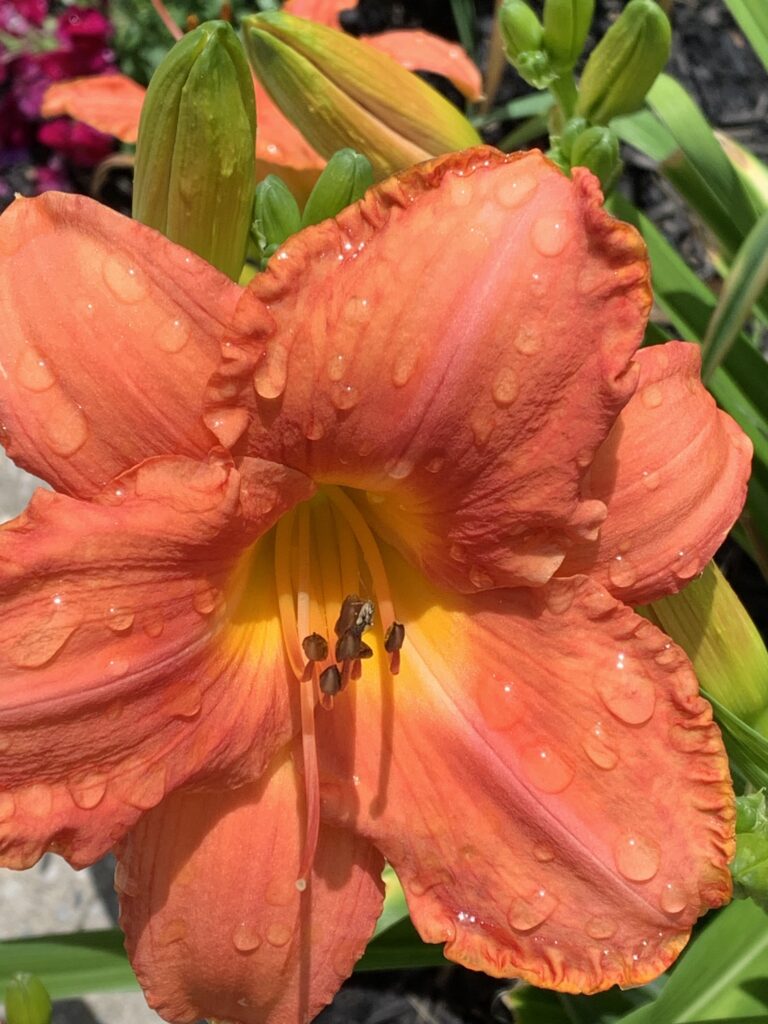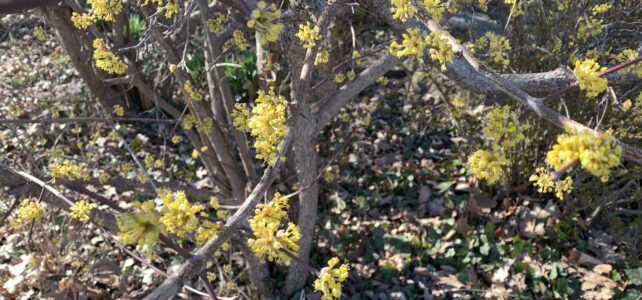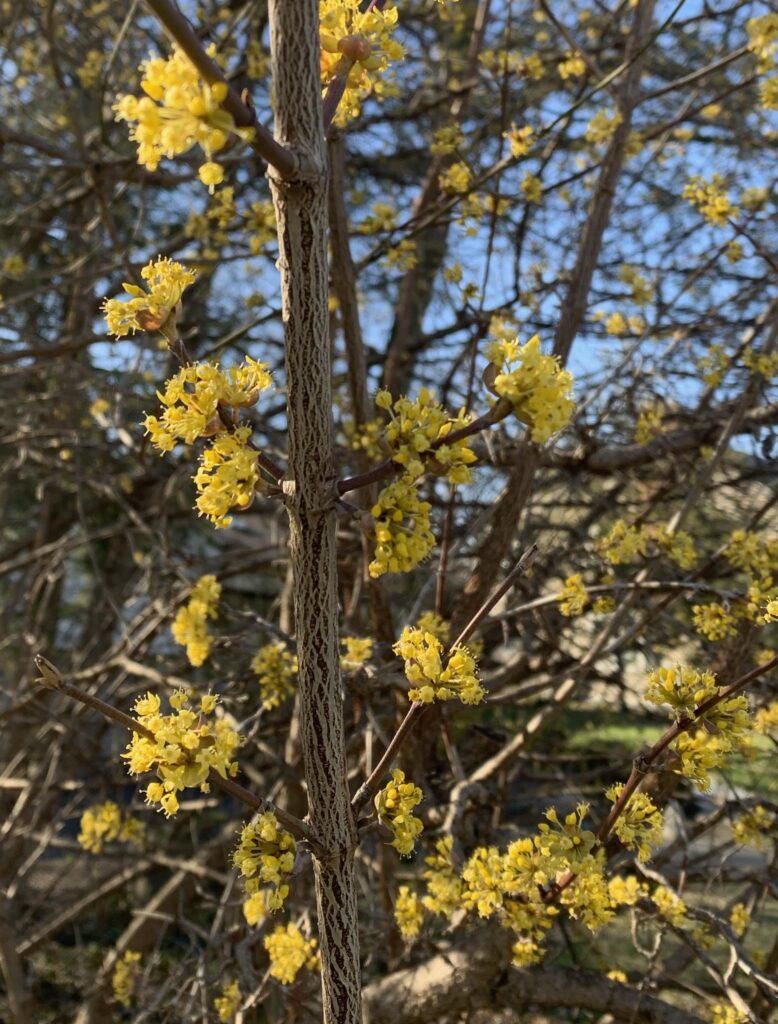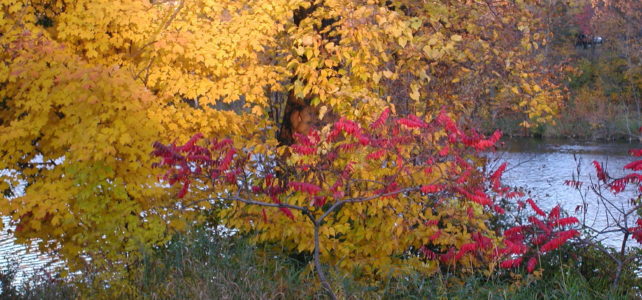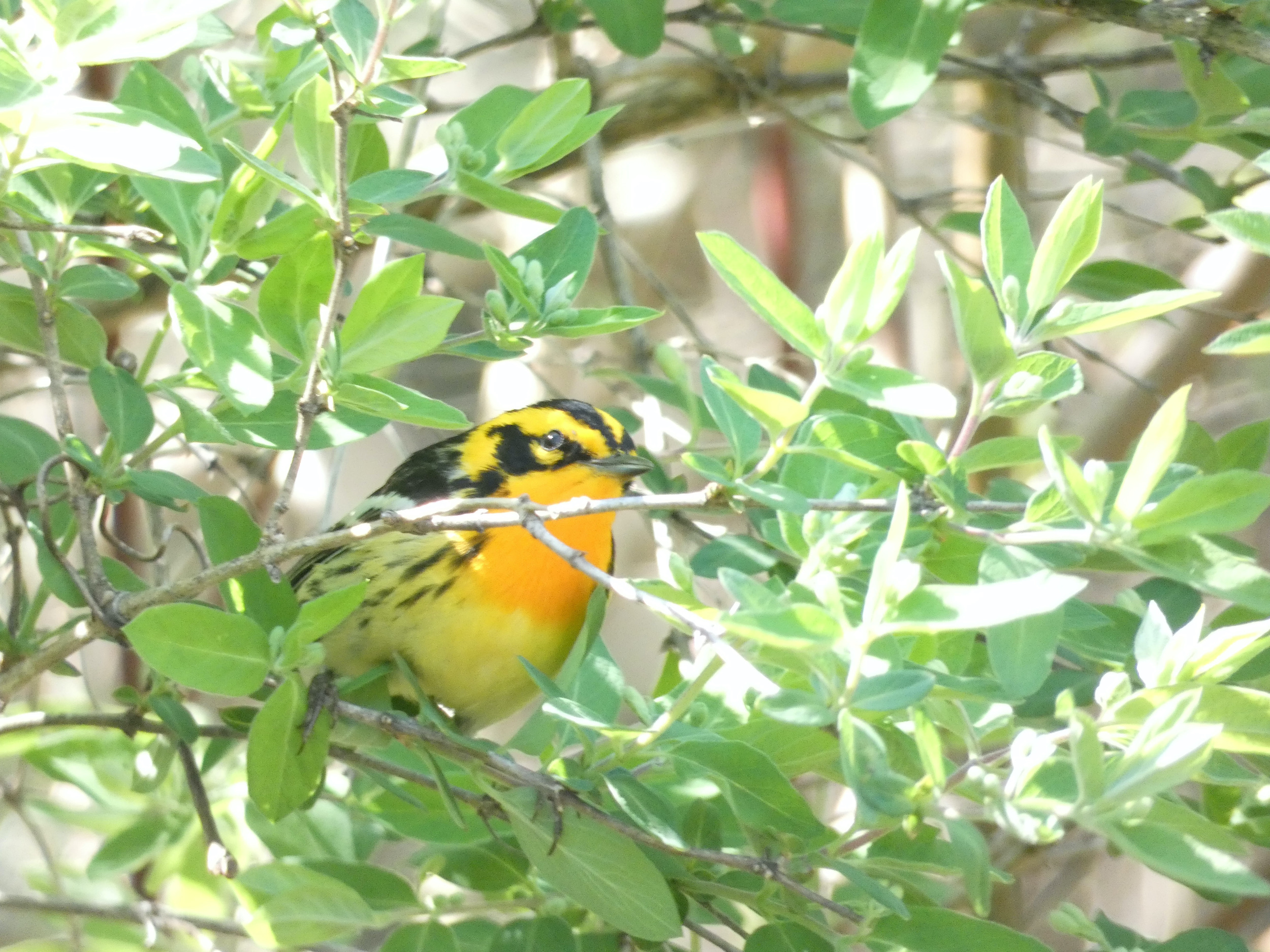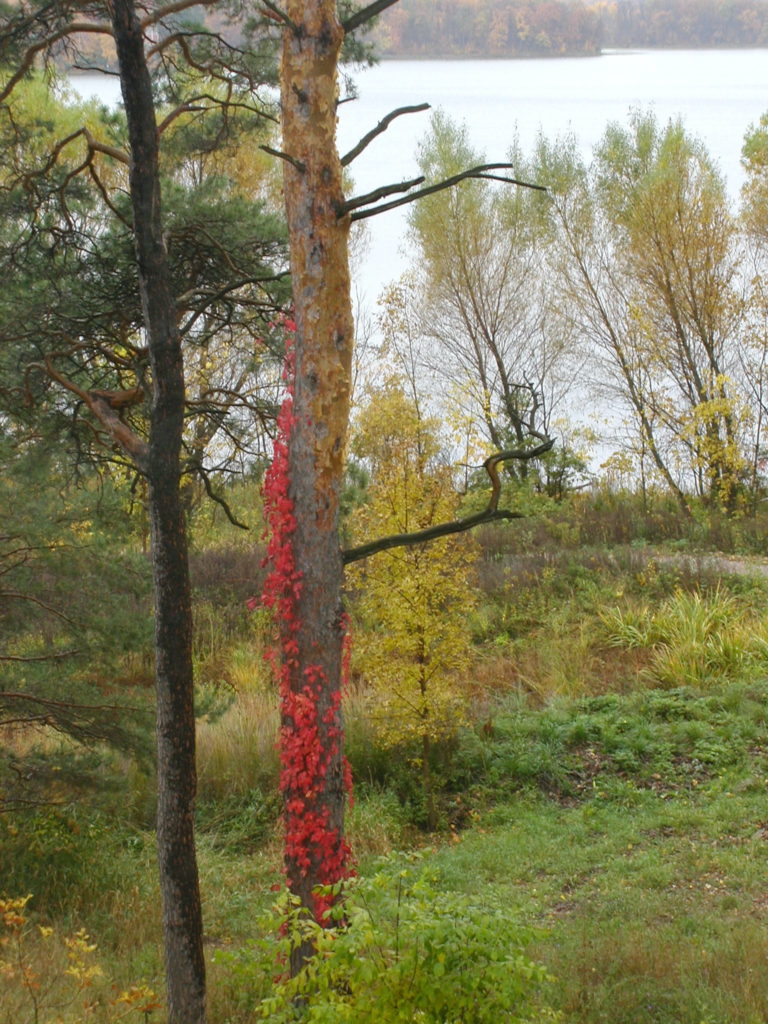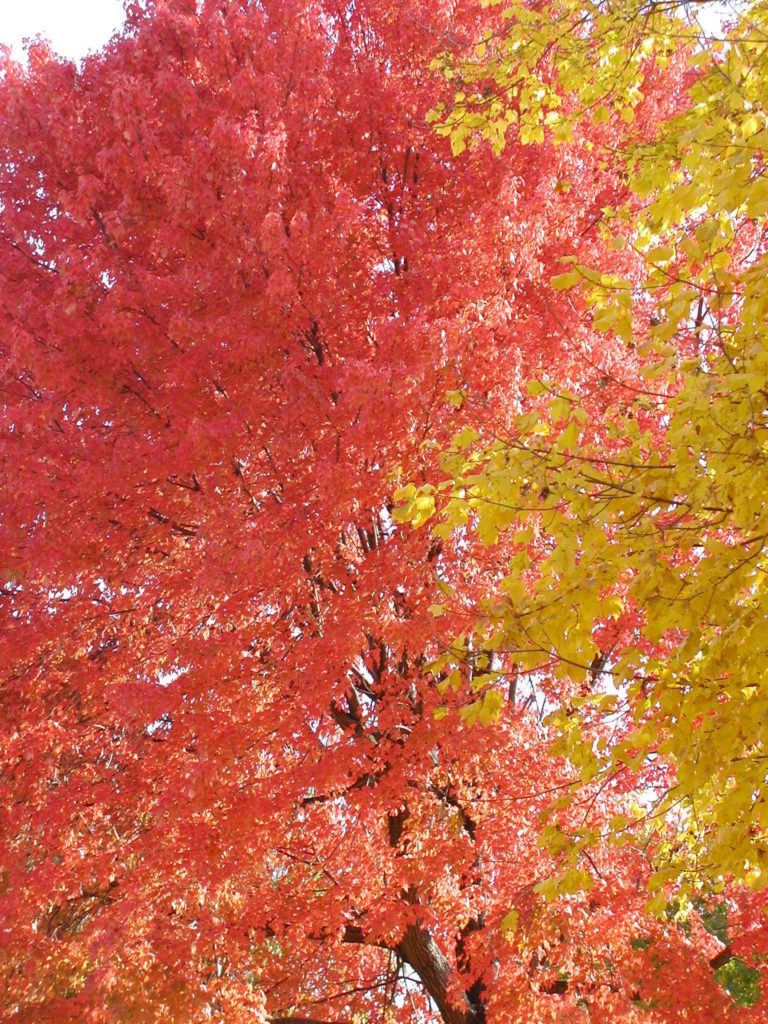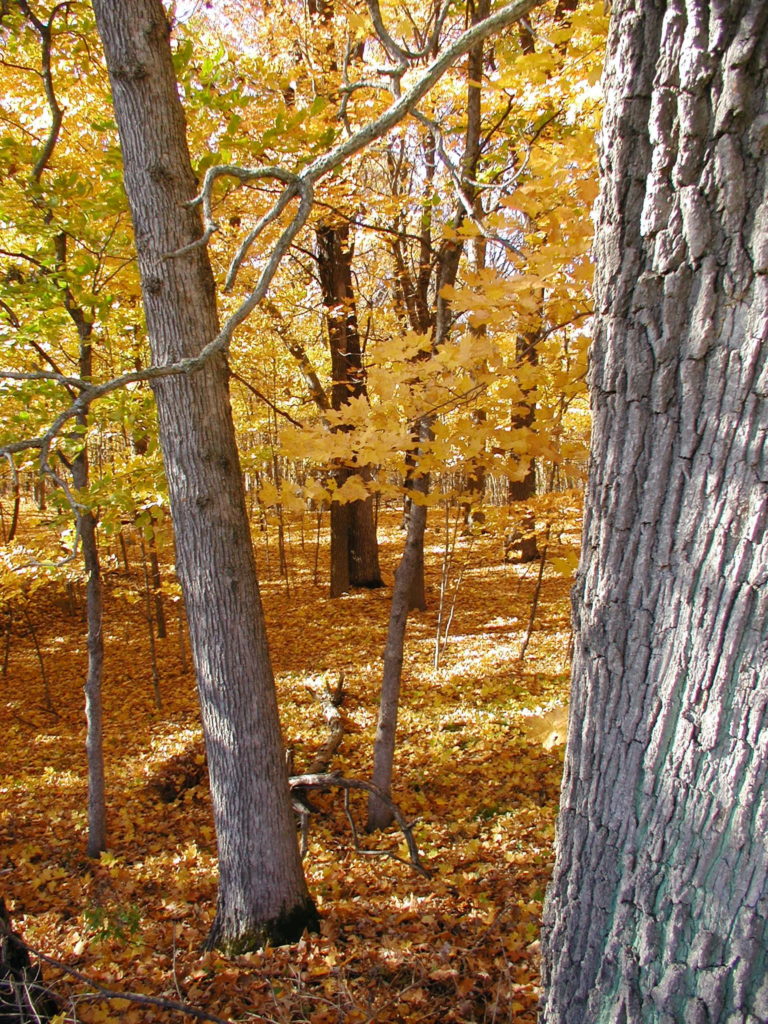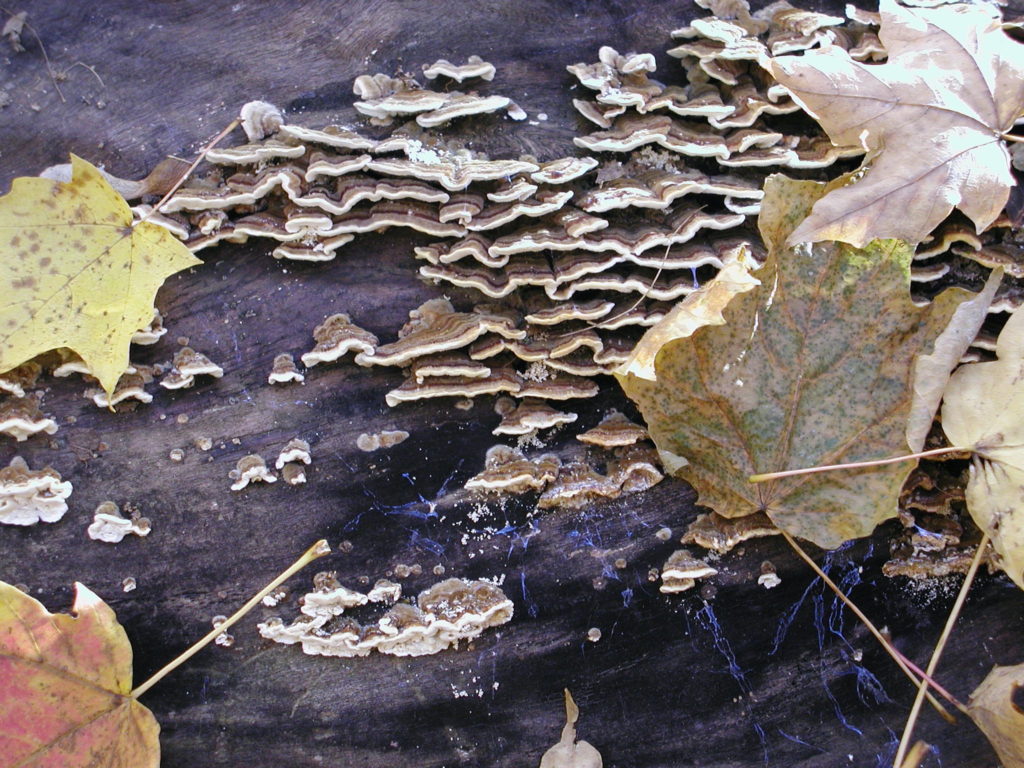Not a lot has changed for me since writing the last column. I continue to have difficulty focusing on the present moment. Quiet prayer feels impossible. How does one still the mind during such times? Information pours into my consciousness and pulls at my attention. The atrocities of the Israeli/ Palestinian war are overwhelming as is the rise of hateful threats and actions against Jewish people and those of Palestinian descent in this country. Our families, friends, and neighbors fear for their safety. This conflict has taken the spotlight off the Ukrainian’s ongoing battle to maintain their autonomy. National divisiveness, fear, and anger continues to poison the political atmosphere, particularly with elections just days away.
I confided in a spiritual companion that beyond struggling with prayer practices, my faith itself falters. I try Brother Lawrence’s “practice of the Presence” and remember throughout the day that I am in the presence of God—and hope there is one. This is what I can do.
My friend shared her practice of beginning each day reading newspaper articles—not just the headlines as I usually do—and looking for goodness, for acts of courage and concern for the common good. It reminds her that as much evil as there is in the world, there is also much good. Then she reflects on what she can do in her day, where she is, to contribute to bringing God’s Love into this time and space.
The next day, since my subscriptions are digital, I went out and bought a physical, hold-in-your-hand newspaper. I pulled a blank journal off my shelves, wrote “Lectio with Newspapers” on the front, and settled at the dining room table intending to read until I found a bit of light in the dark news, cut out that section, glue it into the journal, and then write my reflection on it. The journal would be a new addition to the Lectio journals I have kept over the years while using Scripture or other Wisdom literature as the text.
I read one article. Then two. A few lines caused me to pause, but I was sure there must be some more solid “goodness” that would jump off the page. An hour or so later, I folded up the paper and decided to try another day.
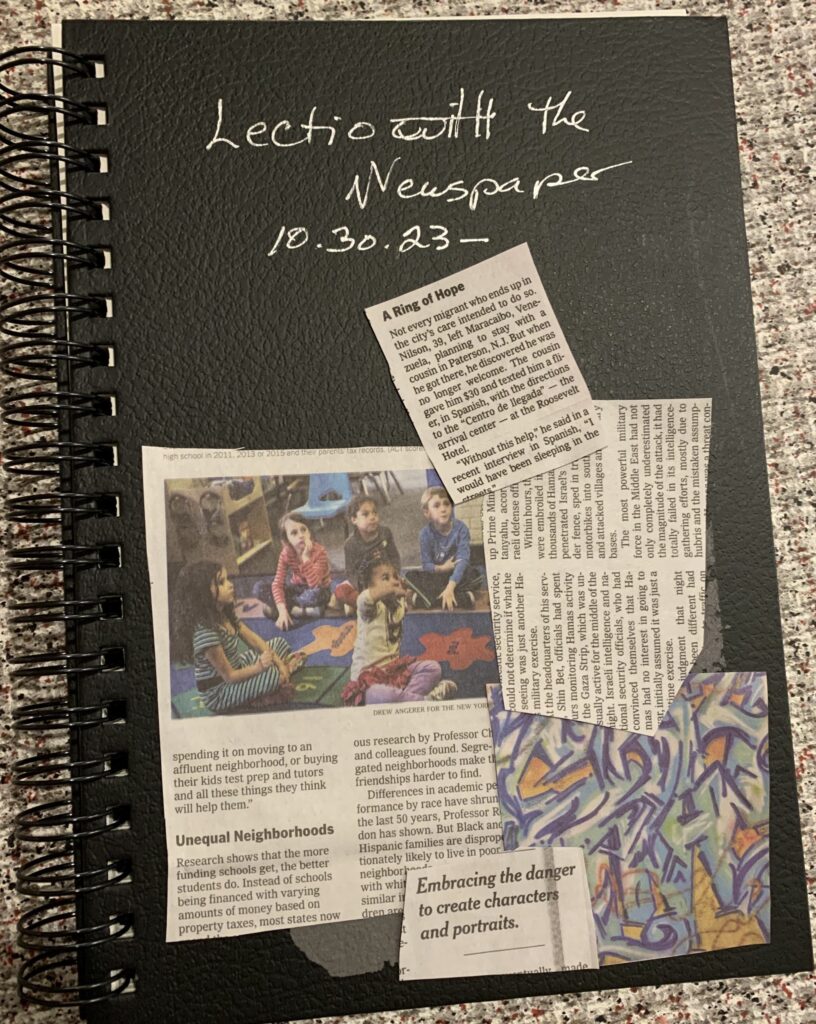
In this frame of mind and soul, I came across Mary Oliver’s poem “Mockingbirds.” It opens with her hearing two mockingbirds tossing their songs across a field. She had nothing better to do than listen, she said. Then she offers a story of a poor Greek couple who welcomed two strangers into their home having nothing but their attentiveness to offer, which they did. And their guests, who turned out to be gods, loved them for it. Upon leaving, they shed their mortal bodies and became a fountain of light reaching into every corner of the humble cottage.
The couple understood and bowed before the Sacred in their midst and asked nothing for themselves, grateful for the blessing of Presence.
Mary Oliver ends the poem saying she was opening the dark doors of her soul, leaning out into the moment. She was listening.
I read the poem a few times and decided I longed to be like the poor Greek couple. I already am in some ways. I feel like I have little to offer these days. No great (or even not so great) wisdom. No answers. Not even an unshakeable faith. But I could be attentive. To the simplest of things. Maybe the sound of the ever-colder wind rustling the last leaves off the trees. Or the water boiling in the electric kettle. Or the sun illuminating the bouquet of pink and white alstroemeria that after two weeks are still beautiful in my brother-in-law’s handmade vase.
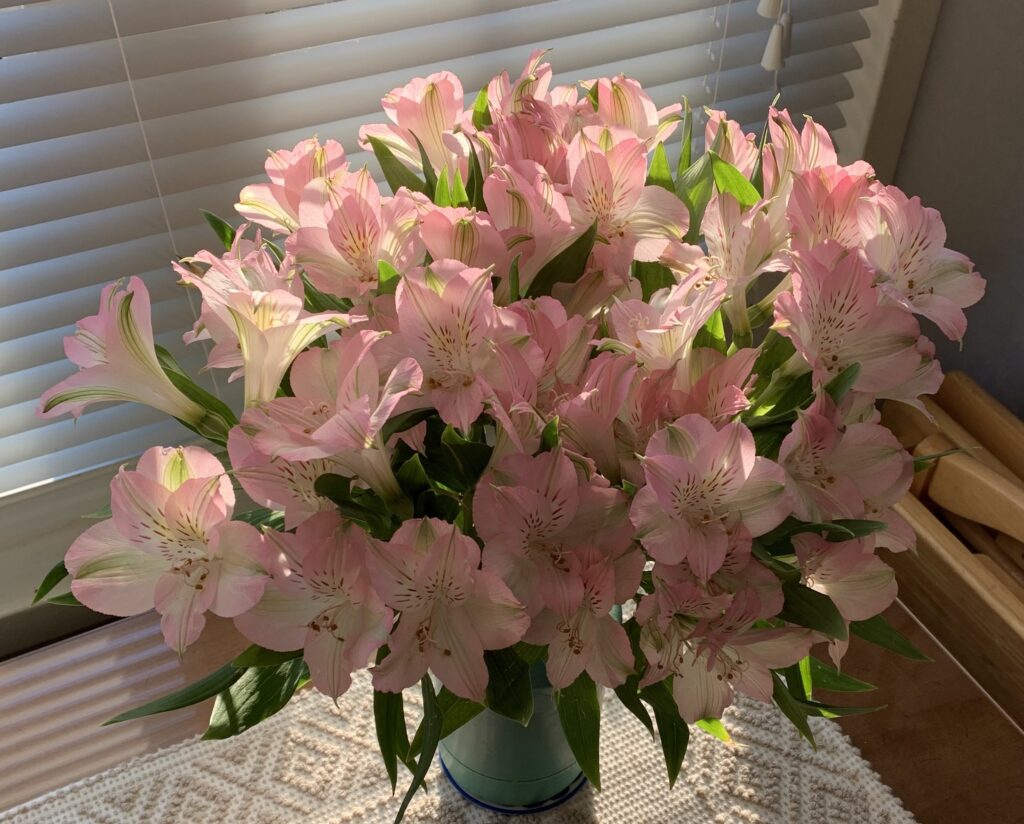
Or maybe it’s laughter shared during a heart-to-heart with a friend. A chat with a stranger met while on a neighborhood walk. A meal shared. The smell of beets from the garden simmering in a large pot on the stove.
If I can, like the Greek couple, give my attention, perhaps I will recognize the good in that moment, and bow to the Presence. Maybe I’ll be able to recognize Light in newspaper articles the next time I try. Or maybe Presence will flush out some of the fear and make room for Love to enter in.
I don’t know. But like the Greek couple, it’s all I’ve got. And like Mary Oliver, I wonder what else is a better way to spend my time. Who knows what doors attentiveness will open? What spaces in my soul will be swept clean, ready to receive a stranger. To discern the next step. To let light in so it can leak out. Maybe I will recognize the Sacred and be open to its Blessing. Maybe it will scatter through the dark corners of my soul and fill them all with light. Or maybe the Blessing will bring just enough light to reveal the Holy One sitting with me in the dark.
Sources
“Mockingbirds” by Mary Oliver
Nicolas Herman-Brother Lawrence of the Resurrection, Practice of the Presence: A Revolutionary Translation by Carmen Acevedo Butcher
